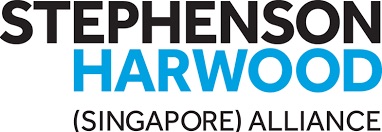29 March, 2017
Following a public consultation in Singapore by the Ministry of Finance and the Accounting and Corporate Regulatory Authority ("ACRA"), the Singapore Government has recently passed the Companies (Amendment) Act 2017 and the Limited Liability Partnerships (Amendment) Act 2017 – introducing certain changes to the Companies Act and the Limited Liability Partnerships Act.
The forthcoming legislative changes are designed among other things to: (i) reduce regulatory burdens; (ii) improve the ease of doing business in Singapore; and (iii) enhance Singapore's reputation as an international centre for debt restructuring.
One area of particular significance to those currently operating in Singapore involves the introduction of measures designed to enhance transparency surrounding the ownership, and control, of Singapore/foreign companies and limited liability partnerships.
The drive towards improved transparency is intended to: (i) reduce opportunities for the misuse of corporate entities in Singapore for 'illicit' purposes; and (ii) bring Singapore company law in line with disclosure regimes enforced in other jurisdictions. It puts into effect the various commitments made by Singapore at the International Anti-Corruption Summit held in London in May 2016.
In this article, we focus on the requirement from 31 March 2017 to maintain a 'register of controllers' – an aspect which is likely to have an effect upon all those operating in Singapore today through corporate vehicles and limited liability partnerships.
What is changing?
From 31 March 2017, all: (i) Singapore incorporated companies; (ii) Singapore limited liability partnerships; and (iii) foreign companies registered in Singapore, unless exempted, ("Eligible Entities") will be required to maintain a 'register of controllers' in their statutory records.
Certain entities are exempted, and these include: (i) Singapore public companies listed on the SGX; (ii) Singapore financial institutions; and (iii) Singapore/foreign companies listed outside Singapore that are already subject to regulatory disclosure requirements, and requirements relating to adequate transparency in respect of their beneficial owner.
The definition of 'controller' encompasses individuals or corporate entities holding a significant interest in, or significant control over, an Eligible Entity. The threshold for holding a 'significant interest' or 'significant control' in an Eligible Entity will be met, in general, by having the right to appoint or remove a majority of directors, or by holding more than 25% of shares or capital (depending upon the type of entity involved), or more than 25% of the voting power, in the Eligible Entity.
Inspection rights
The 'register of controllers' must be provided for inspection upon the request of ACRA or other public agencies, but the 'register of controllers' is not to be disclosed or made available to the public and will be held only by the Eligible Entities.
When do these changes take effect?
As noted above, the requirement to put in place a 'register of controllers' comes into force on 31 March 2017. However, there will be transitional arrangements in place for new and existing Eligible Entities, which are:
- a 60 day period from 31 March 2017 to create the 'register of controllers' for Eligible Entities existing prior to 31 March 2017; and
- a 30 day period from the date of the relevant Eligible Entity's incorporation to create the 'register of controllers' for Eligible Entities created on or after 31 March 2017.
What do you need to do?
In the absence of an exemption, if your business operates through a: (i) Singapore incorporated company; (ii) Singapore limited liability partnership; or (iii) foreign company registered in Singapore, the duty to create a 'register of controllers' will apply.
The duty to maintain the 'register of controllers' requires Eligible Entities to take reasonable steps to: (i) identify potential controllers; (ii) send notices to potential controllers; and (iii) compile the register.
Penalties
Failure to maintain a 'register of controllers' will give rise to specific offences, and a conviction in respect of any of those offences could result in an Eligible Entity (as well as each of its directors) being liable to pay a fine of up to S$5,000. Of course, how these penalties will be applied in practice is to be seen.
How can we help you?
We are able to assist Eligible Entities with discharging all aspects of the new duties imposed upon them, including:
- reviewing management or ownership structures to identify those likely to be considered as potential controllers;
- preparing and sending notices to potential controllers; and
- compiling the 'register of controllers' following responses to notices from potential controllers.
We are also well placed to assist with assessing the validity of requests to inspect the 'register of controllers', and overseeing the process of disclosing the 'register of controllers' for inspection. For more information, please do not hesitate to contact any of the team at Stephenson Harwood (Singapore) Alliance.

For further information, please contact:
Elaine Beh, Partner, Virtus Law LLP
(a member of the Stephenson Harwood (Singapore) Alliance)
elaine.beh@shlegalworld.com

.jpg)




